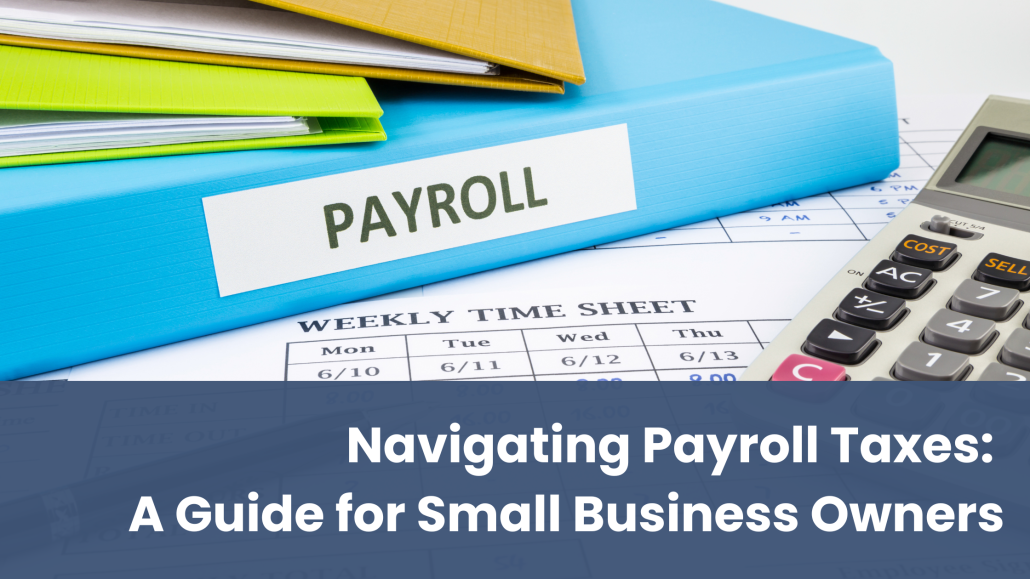
Handling payroll taxes is a crucial task for small business owners. Getting it right ensures you comply with federal, state, and local regulations and helps you avoid expensive penalties. This blog post will guide you through the key aspects of managing payroll taxes, covering important deadlines and compliance requirements.
Understanding Payroll Taxes
The basics of payroll taxes are taxes employers must withhold from employees’ wages and pay on their behalf. These taxes include:
- Federal Income Tax: Withheld based on the employee’s W-4 form and the IRS withholding tables.
- Social Security and Medicare Taxes: Known as FICA (Federal Insurance Contributions Act) taxes. Employers must match the employee’s contribution.
- Federal Unemployment Tax (FUTA): Paid by employers to fund unemployment benefits.
- State and Local Taxes: These vary by location and may include state income tax, state unemployment tax, and local taxes.
Key Deadlines
Staying on top of payroll tax deadlines is crucial for compliance. Here are the important dates to remember:
- Monthly Depositors: If your total tax liability is less than $50,000 in the previous four quarters, you must deposit taxes monthly. Deposits are due by the 15th of the following month.
- Semi-Weekly Depositors: If your total tax liability is more than $50,000 in the previous four quarters, you must deposit taxes semi-weekly. For paydays on Wednesday, Thursday, or Friday, deposits are due by the following Wednesday. For paydays on Saturday, Sunday, Monday, or Tuesday, deposits are due by the following Friday.
- Quarterly Form 941: Employers must file Form 941, Employer’s Quarterly Federal Tax Return, by the last day of the month following the end of the quarter (e.g., April 30 for the first quarter).
- Annual Form 940: Employers must file Form 940, Employer’s Annual Federal Unemployment (FUTA) Tax Return, by January 31.
- W-2 Forms: Employers must provide W-2 forms to employees and file them with the Social Security Administration by January 31.
Compliance Requirements
To remain compliant with payroll tax regulations, small business owners must:
- Obtain an Employer Identification Number (EIN): An EIN is required for reporting taxes and other documents to the IRS.
- Classify Workers Correctly: Misclassifying employees as independent contractors can lead to significant penalties. Ensure workers are properly classified based on IRS guidelines.
- Maintain Accurate Records: Keep detailed records of all payroll transactions, including wages paid, taxes withheld, and tax deposits made. Records should be retained for at least four years.
- Report New Hires: Report new employees to your state’s new hire reporting agency within the required timeframe.
- Use the Correct Tax Forms: Ensure you are using the correct forms for reporting payroll taxes, such as Form 941, Form 940, and W-2 forms.
Tips for Managing Payroll Taxes
- Automate Payroll: Consider using payroll software to automate tax calculations, withholding, and deposits. This can help reduce errors and ensure timely compliance.
- Stay Informed: Payroll tax laws and regulations can change. Stay informed about updates from the IRS and your state tax agency.
- Consult a Professional: If managing payroll taxes becomes overwhelming, consider consulting a CPA or payroll service provider for assistance.
Managing payroll taxes is an important aspect of running a small business. By understanding the different types of payroll taxes, keeping track of important deadlines, and ensuring compliance with regulations, you can avoid penalties and focus on growing your business.


